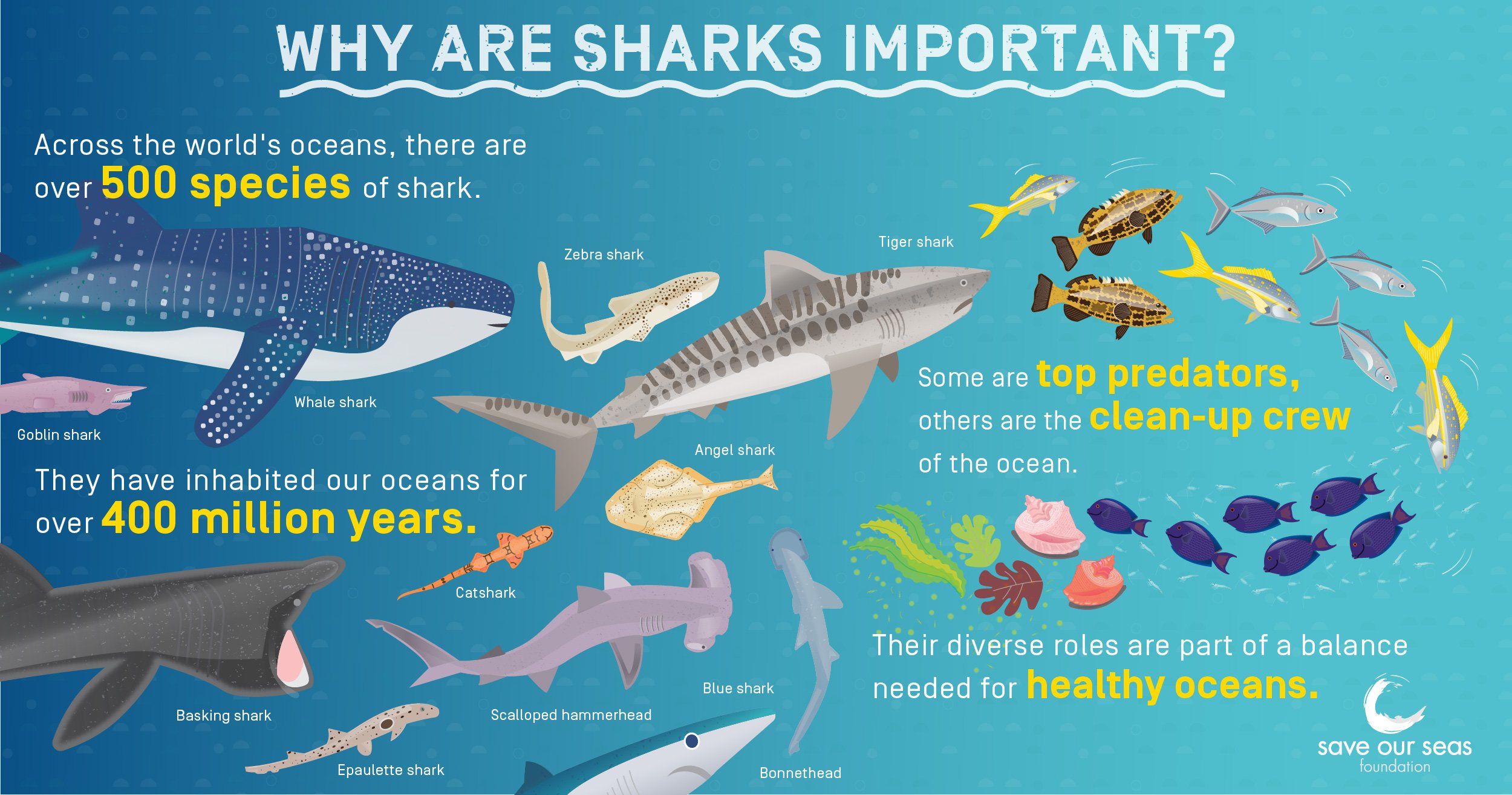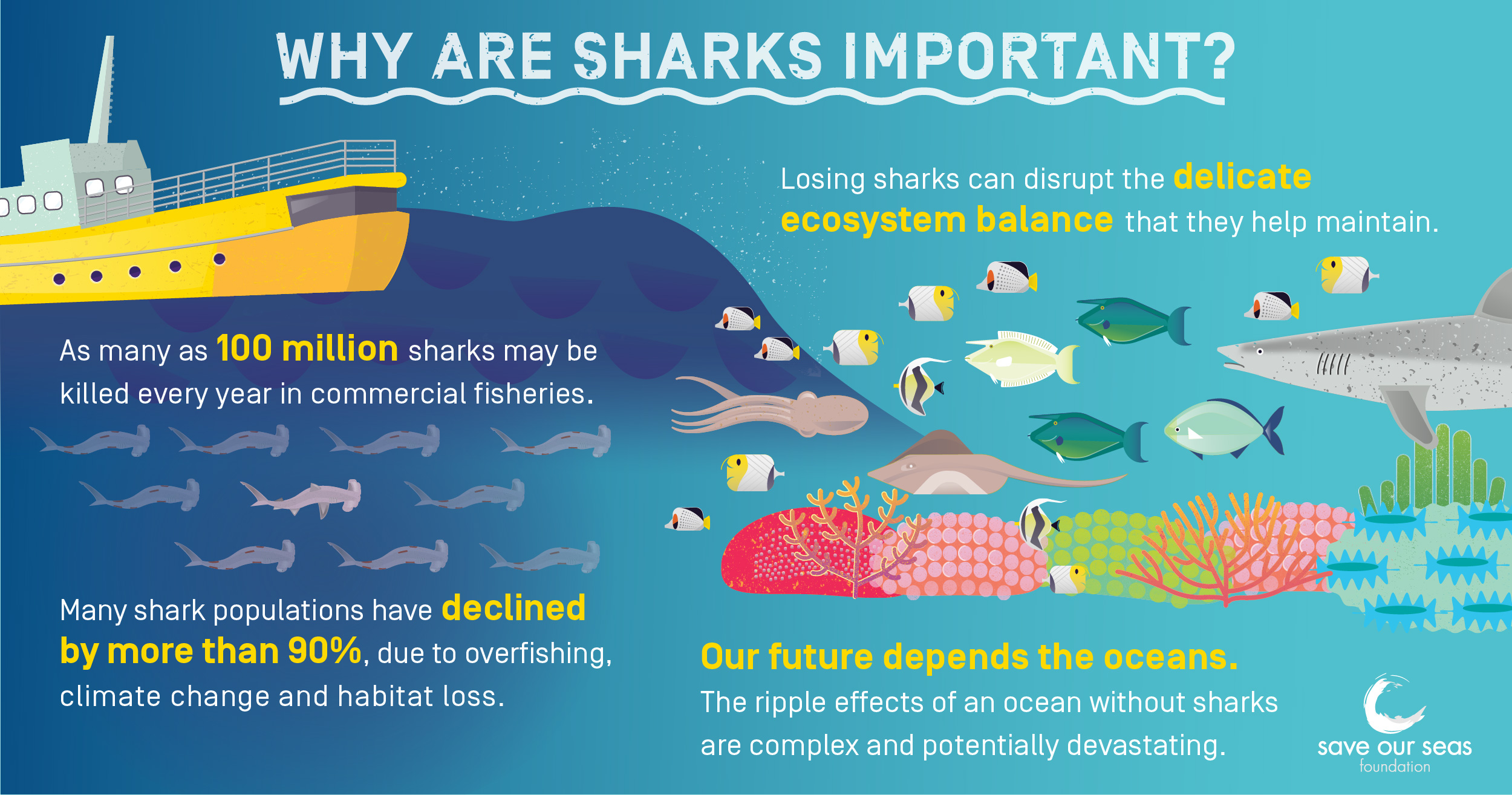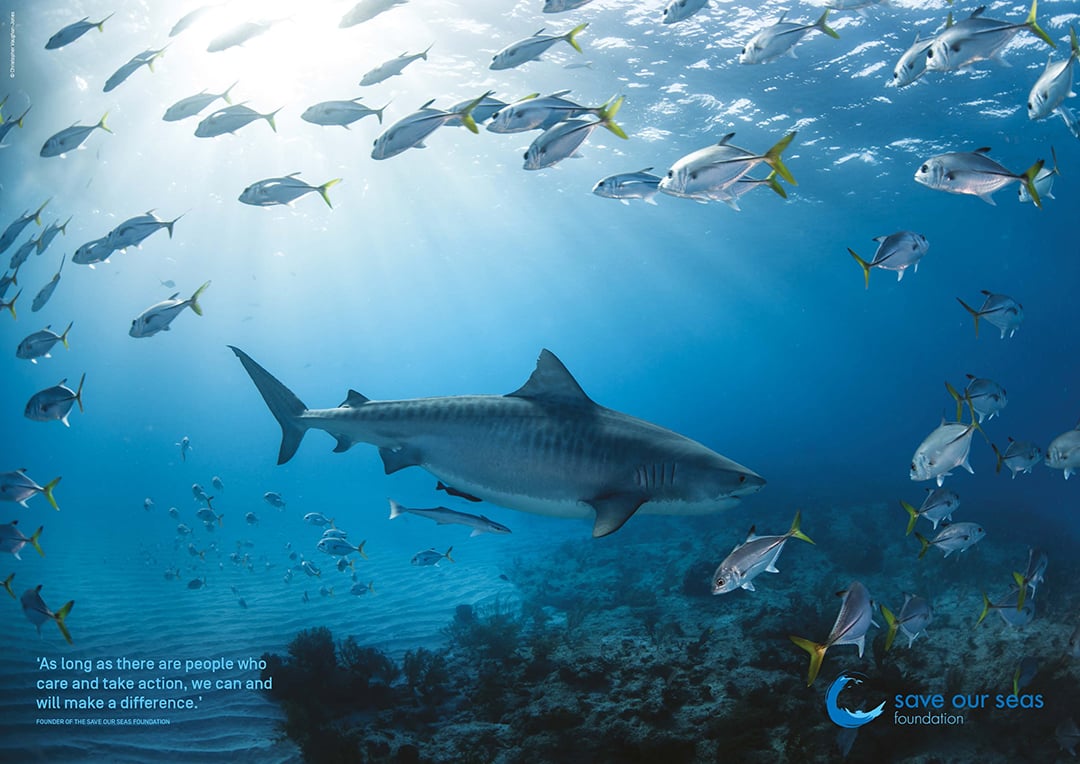Why are sharks important?
From coastal cities to landlocked towns the ocean plays a crucial role in our environment. The biodiversity of the ocean breathes fresh air into our atmosphere and brings rainfall and food to us all around the world. Our existence and the existence of all the world’s creatures hangs in the balance of this vast life support system. Each and every creature that lives below the surface contributes to that ecosystem, playing an integral part in the balancing act that is life on Earth.
As Sir David Attenborough put it,
What you can do to help sharks
Overfishing, climate change, and habitat loss have had a staggering effect on populations, with a quarter of the world’s sharks and rays threatened with extinction! Unfortunately, incomplete catch data makes it hard to know exactly how many are caught in fisheries, but it has been estimated that as many as 100 million sharks are killed every year (both in targeted fisheries and as accidental bycatch). While devastating, more important than the actual value is that these levels of fishing are unsustainable – quite simply, sharks are being caught faster than they can reproduce.
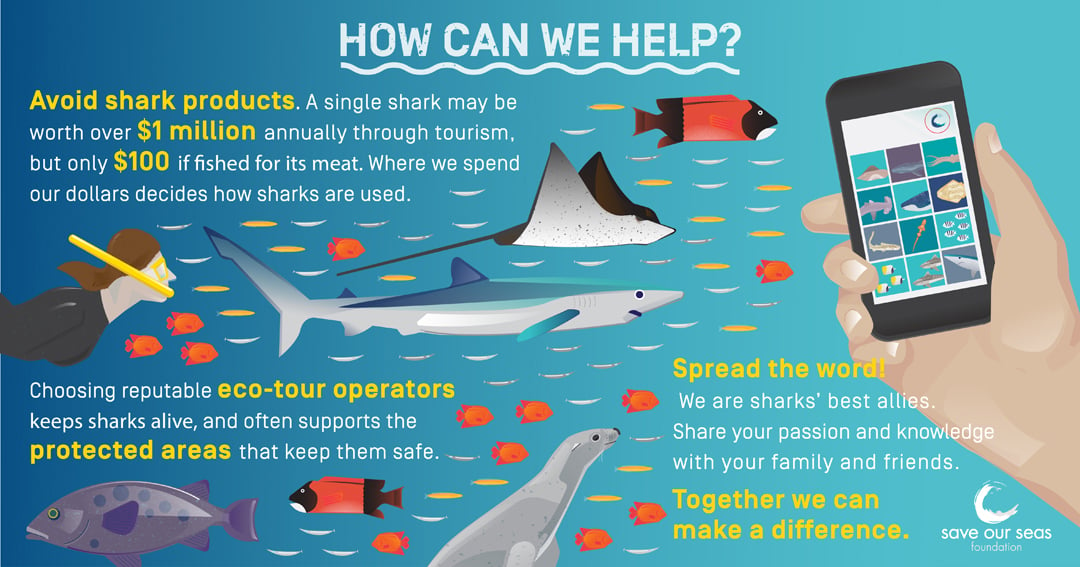
Artwork by Jamy Silver | © Save Our Seas Foundation
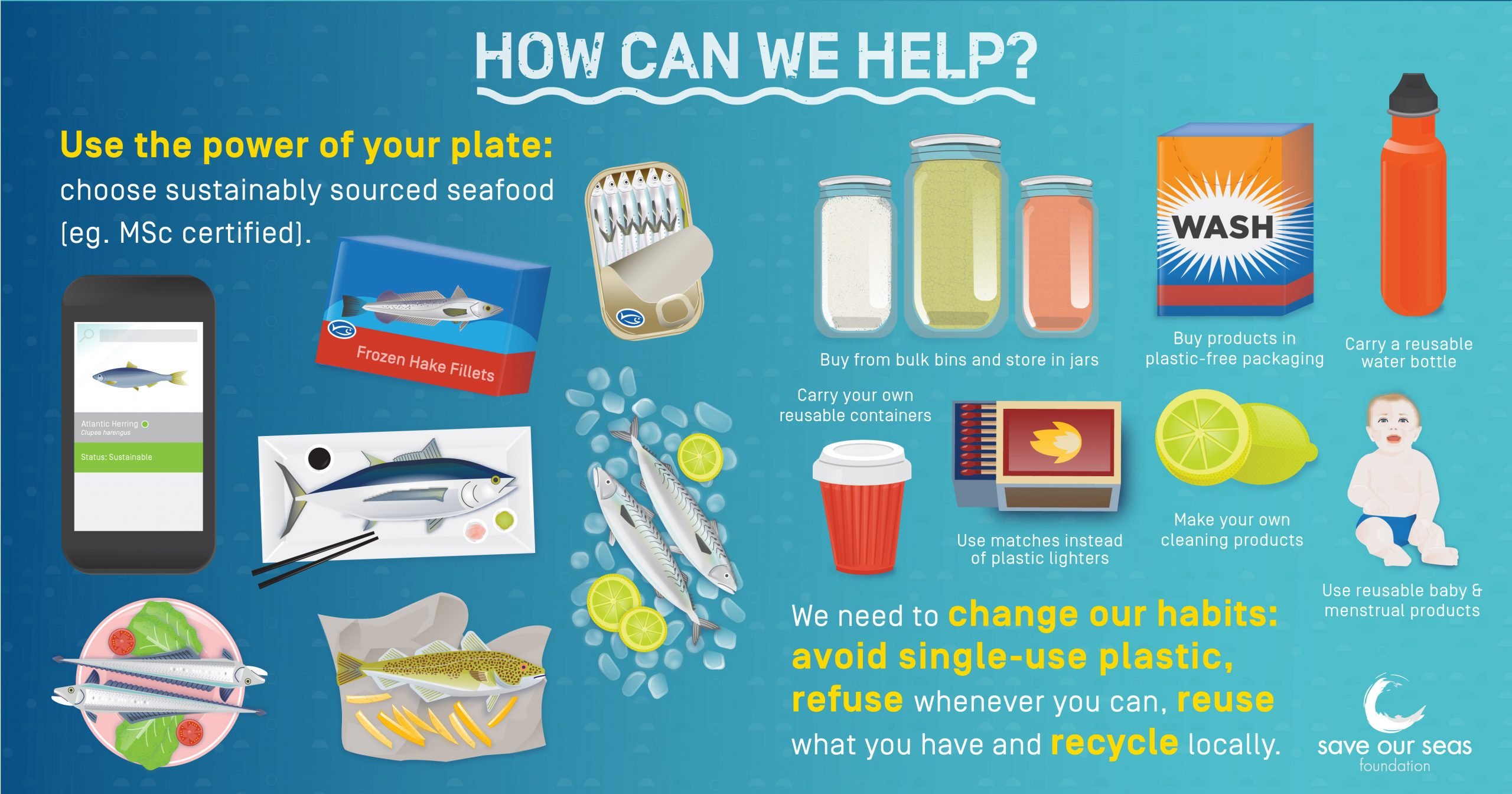
Artwork by Jamy Silver | © Save Our Seas Foundation
Frequently asked questions:
How many types of sharks are there?
There are approximately 520 species of shark described by scientists. In total, there are around 1,200 species of cartilaginous fishes, which includes the sharks, skates, chimaeras, and rays.
How many shark species are endangered?
A quarter of the world’s sharks species (130/520) are threatened with extinction according to the IUCN red list of threatened species.
Do sharks have predators?
Yes, very few shark species are free of predation and many of them fall prey to bigger fish or marine mammals.
How many sharks are killed by humans each year?
It has been estimated that over 100 million sharks are killed each year by fisheries alone.
What is the biggest shark?
The whale shark is the world’s largest fish measuring up to 14 m (45 ft). These gentle giants feed on plankton and are a favourite swimming buddy to many scuba divers and snorkelers.
How long have sharks existed?
Sharks in some form have been around for over 400 million years! Fossils have been found to show that they have roamed our seas since before the dinosaurs and have not changed all that much since then.
What is an elasmobranch?
Elasmobranches are a group of fishes consisting of sharks, skates and rays. They are identified by their cartilage skeleton and by having five or more gill slits on the side of their head.
What does shark skin feel like?
Shark skin is made up of tiny teeth-like structures called placoid scales, also known as dermal denticles giving them a sandpaper-like texture. These scales lie flat, facing towards their tail to reduce friction in their water.
Do sharks ever sleep?
They do not sleep like humans do and rather have restful and active periods. The way they rest is dependent on the species. It was previously believed that all sharks had to continue moving in order to breathe, however, we now know that some species are able to push water over their gills without swimming.
What can I do to help sharks?
- Avoid unsustainable shark products. Many populations have DECLINED BY OVER 90% from overfishing, pollution and habitat loss. For some shark species, keeping a single individual safe from being fished may be worth over $1 million annually to tourism.
- Choose reputable and responsible eco-tour operators. When engaging with wild animals it is always best to ensure that your guide is experienced and respectful of the animals they are encountering. Make sure you are supporting those operators who are doing their best to protect our oceans.
- Be smart about what seafood you eat. Choose sustainably sourced seafood that is certified or marked as such. Choosing reliable and sustainable fisheries will promote better practices from fisheries. Use your power as the consumer for good.
- Keep the shores clean. Avoid single-use plastics and harmful chemicals that might end up in our oceans. Your choices can help to affect our oceans for the better rather than for the worse.
- Share your knowledge far and wide. Spread the things you learn with loved-ones and friends, share your knowledge online and make the small steps you can to lead by example to those who will listen.
- Make your voice heard by supporting campaigns in your area or by writing to MPs to express your concerns and thoughts on how governments could better help preserve our sharks.
Find more about why we need sharks and how you can help sharks.

